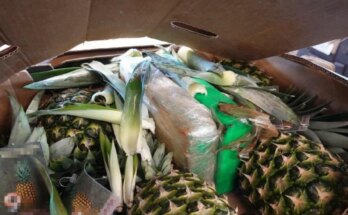British scientists have found evidence that kissing on the mouth was a practice shared by the ancestors of humans and great apes.
A time-tested practice. Scientists have found evidence that kissing on the mouth was a practice of the ancestors of humans and great apes, dating back 21 million years.
This study from the British University of Oxford, presented as the first study on the evolutionary history of kissing, appeared this Wednesday in the British specialist journal “Evolution and Human Behavior”. According to the document, Neanderthals “probably” also had this habit.
Researchers first established the definition of kissing as “non-aggressive mouth-to-mouth contact that does not involve the transfer of food.”
They collected data on primate species that have the habit of kissing, including chimpanzees, bonobos and orangutans. Then, using a primate phylogenetic tree, they used a statistical approach to estimate the likelihood that a different ancestor was also skilled at this practice.
Their conclusion: kissing is “an ancient behavioral trait in great apes,” appearing in their ancestors between 16.9 and 21.5 million years ago, according to a press release presenting the research. “Kissing has persisted throughout evolution and still occurs in most great apes,” he added.
“Unfossilized behavioral traits”
“By integrating evolutionary biology with behavioral data, we can draw conclusions about non-fossilized behavioral traits, such as kissing,” explains Stuart West, one of the authors and professor of evolutionary biology at Oxford.
“Our findings add to a growing body of research highlighting the extraordinary diversity in sexual behavior observed in our primate cousins,” commented biologist and lead author of the study, Matilda Brindle.
Scientists have discovered that Neanderthals, who inhabited Eurasia until around 40,000 BC, lived together with Homo Sapiens before disappearing, “may also have had the habit of kissing.”
“This discovery, combined with previous research showing that humans and Neanderthals shared oral microbes (through saliva transfer) and genetic material (through interbreeding), strongly suggests that humans and Neanderthals kissed,” the university emphasized.



